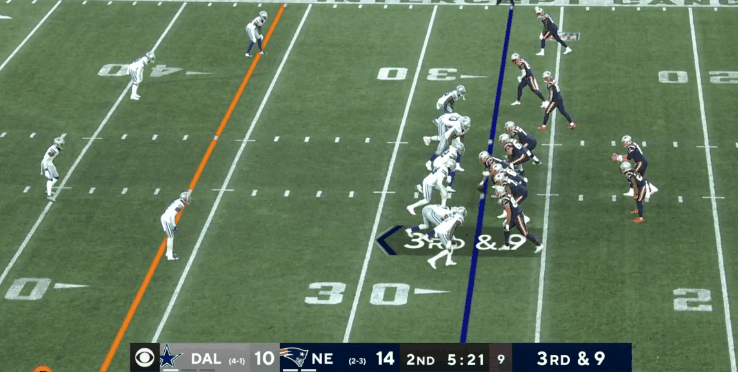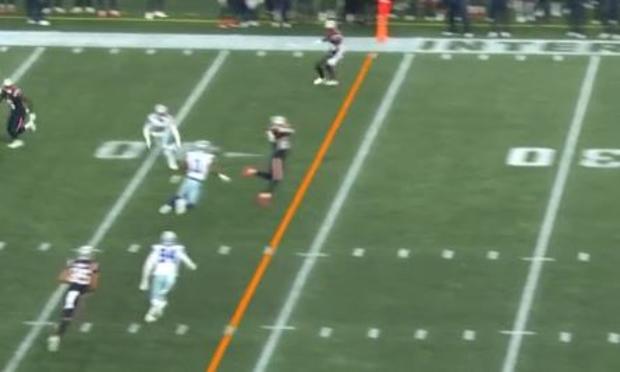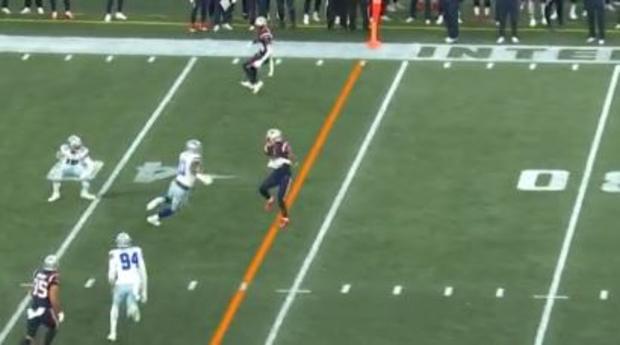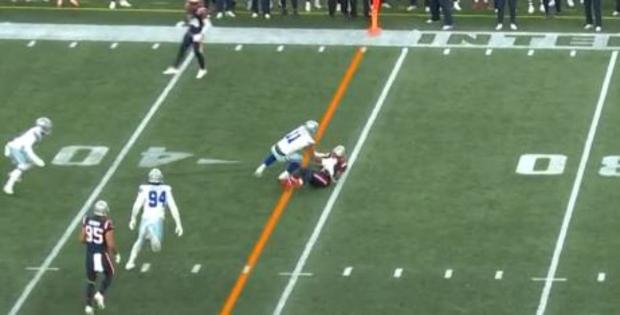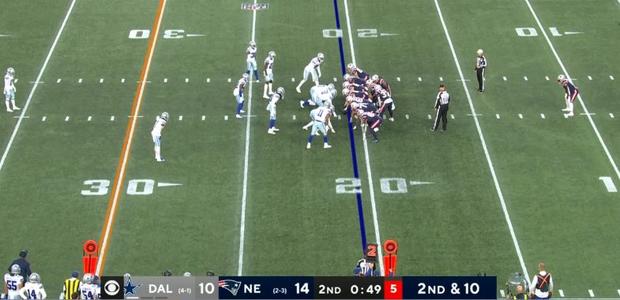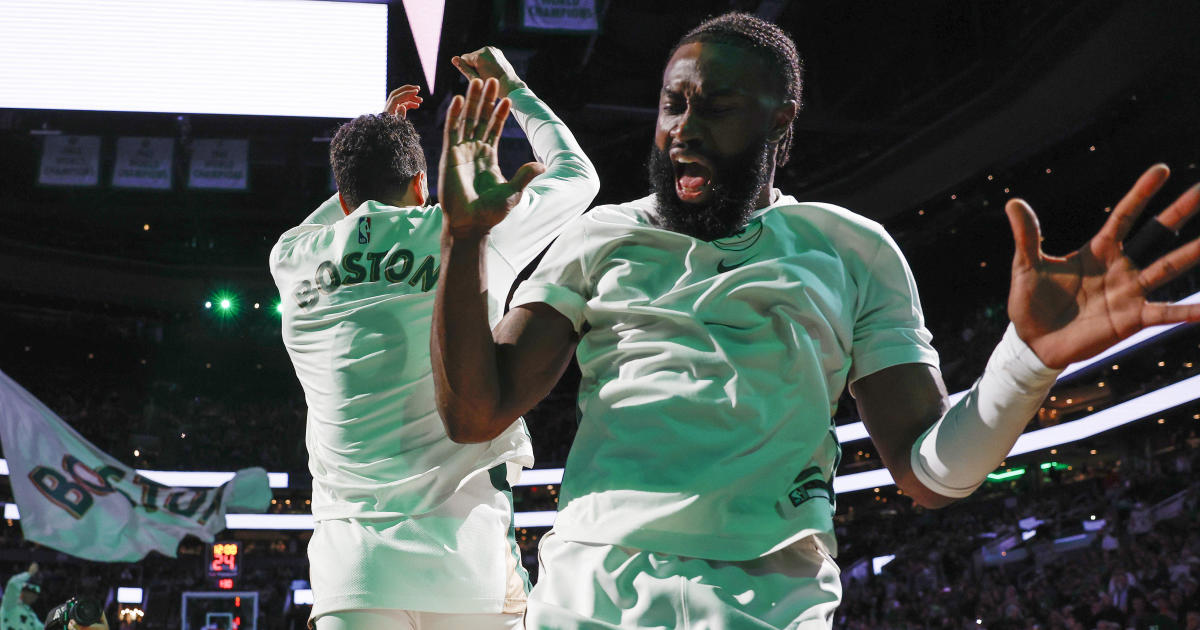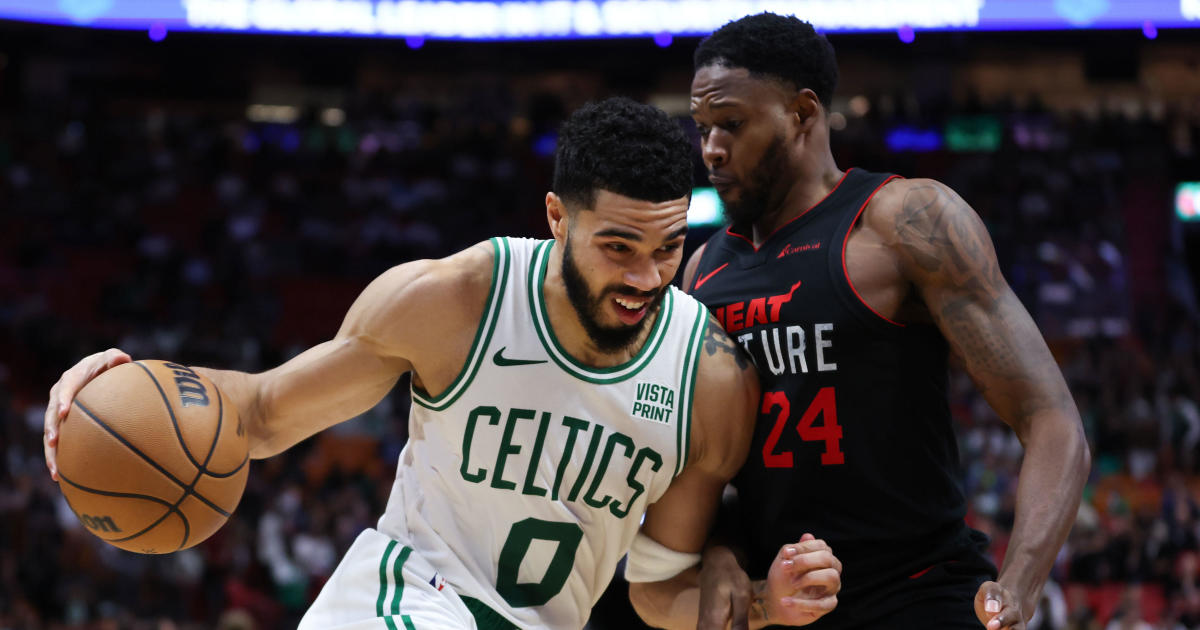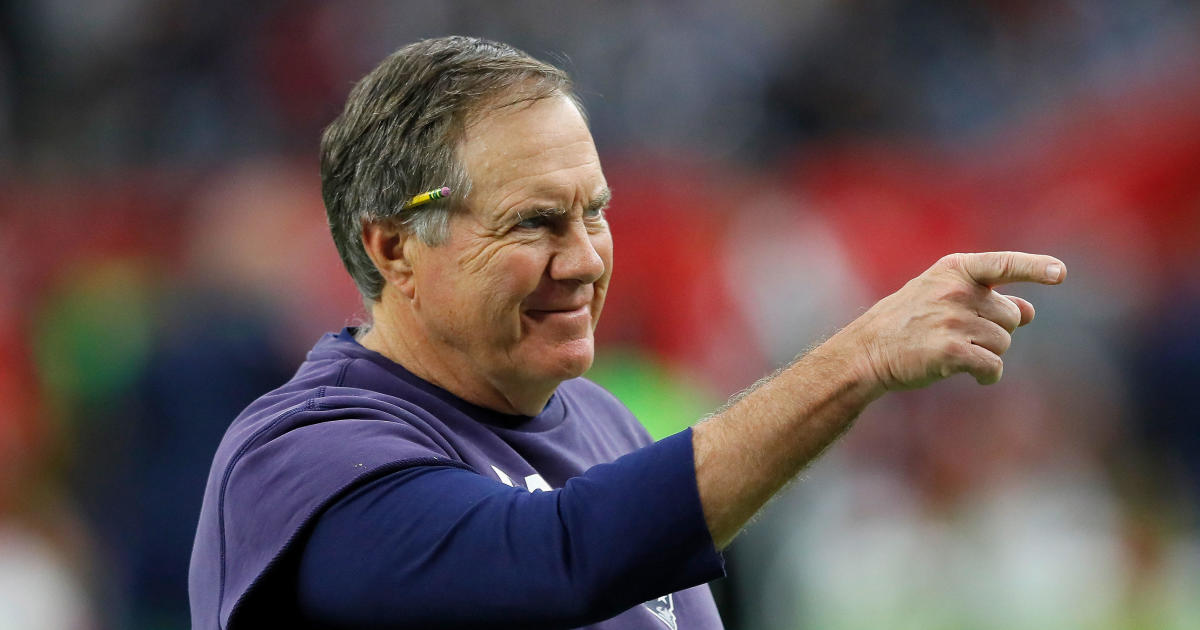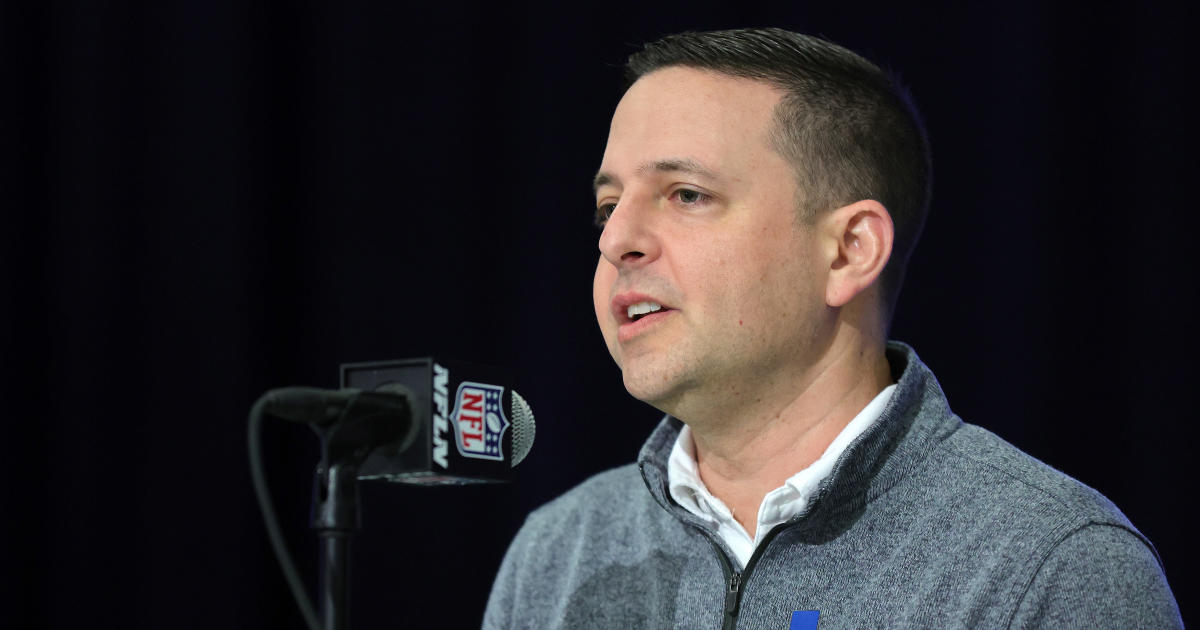Bill Belichick Explains Decision Not To Challenge Play Before Blocked Punt, Conservative Play-Calling Before Halftime
By Michael Hurley, CBS Boston
BOSTON (CBS) -- The Patriots didn't play their most aggressive game on Sunday. They lost in overtime to the Cowboys.
While a loss is comprised of a number of elements, a couple of coaching decisions By Belichick stood out.
One came just before the Cowboys blocked a punt deep in Patriots territory. On a third-and-9 in the second quarter, coming out of a timeout, Mac Jones fired a pass to Jakobi Meyers, who made the catch right at the line to gain -- the 36-yard line.
Meyers did end up falling backward, behind the line to gain, but he had seemingly secured possession with his forward progress being past the sticks.
But the officials ruled him a full yard short, at the 35-yard line. CBS color commentator Tony Romo suggested it would have been a good opportunity to throw a challenge flag. Many Patriots fans agreed.
Here's the play in question:
And here are some still shots of where Meyers secured the catch, but also where his momentum led him:
Alas, Bill Belichick kept his red flag in his sock, and the Cowboys blocked the ensuing punt. (The Cowboys didn't score with that short field, thanks to Ja'Whaun Bentley's forced fumble on a fourth-and-goal QB sneak.)
On Monday morning, Belichick was asked how much thought he gave to challenging the play.
"No, I didn't think that we had -- those are hard plays to challenge out in the field, you know, when there's no line involved. It's pretty unusual to see those overturned," Belichick said. "Didn't get a good enough look at it quickly enough. Maybe you saw it better than we did. But I don't know."
An important aspect of Belichick's answer is the difficulty of winning those challenges. Even if replay review resulted in a new spot, the Patriots would have only won the challenge if that new spot resulted in a first down. If the "new spot" was to have been ruled past the 35 but short of the 36-yard line, then the Patriots would have lost the challenge and still faced fourth down.
While that decision to not challenge was sensible, the team's decision to essentially give up a possession before halftime was a bit of a head-scratcher.
After the aforementioned fumble by Prescott, the Patriots got the ball at their own 20-yard line with a 14-10 lead, 90 seconds left before halftime, and about 50 yards to go to get into field-goal range. After aggressively calling timeouts during Dallas' previous drive, the Patriots opted for an inside handoff on first down, followed by two Mac Jones kneeldowns, seemingly satisfied to take that four-point lead into halftime.
Jones had been on the receiving end of a violent sack by Randy Gregory two drives earlier, which resulted in a lost fumble for the rookie. That lack of protection, which has been an issue all year, might have contributed to the Patriots' decision to play it safe.
After the game, Belichick said this decision was made because the Patriots were receiving the ball to start the second half -- seemingly ignoring the team's long history of capitalizing on "double scores" going into and coming out of halftime.
On Monday morning, Belichick didn't offer any further explanation, referring back to his Sunday night answer multiple times.
"Same answer I gave last night. Nothing's changed," Belichick said.
A reporter pointed out to Belichick that numerous times in his coaching history, the Patriots have taken a more aggressive approach in similar spots.
"Sure, every game is different," Belichick said.
When asked specifically why the aggressive decision was not made in this instance, though, Belichick opted to not elaborate.
"Because we were going to get the ball in the second half," Belichck said. "We went back and, you know, wanted to get settled in in the second half, you know, at halftime. Same thing I said last night."
Obviously, nothing in either spot was a guarantee. But both decisions -- combined with the decision to punt on fourth-and-3 in overtime, leading to Dallas' game-winning possession -- reflected a timid approach that certainly contributed to a loss against one of the NFL's best teams in a game that could have been won by the home team.
